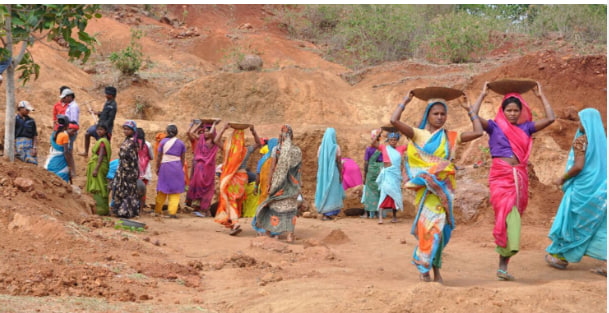Going off-course : On the rural jobs scheme and the Centre’s bid to change its funding
The Centre’s suggestions on changes in the Mahatma Gandhi National Rural Employment Guarantee Scheme seem misguided
A key to the success of any welfare programme is the conviction in its implementation. In the 17 years since the Mahatma Gandhi National Rural Employment Guarantee Scheme (MGNREGS) has been implemented, studies have asserted its net positive impact in the rural areas. From reducing penury through providing off-season employment, and thereby improving household consumption among the invariably poor citizens who avail the scheme, to acting as insurance during monsoon deficient seasons, besides allowing for greater food security through increased productivity helped by the works generated, the scheme continues to be a robust welfare tool. This was even clearer during the pandemic, when thousands of migrant workers who left urban areas due-to the lockdowns took up work under the MGNREGS in rural areas where demand for the menial but arduous work peaked. There is of course the case that the scheme has still not transcended into creating more useful assets beyond roads and irrigation canals and requires broadbasing and better implementation. But it must be said that the Union government’s treatment of the scheme has graduated from a case of lukewarm acceptance of its need because of its popular impact to treating it as a fiscal burden.
Such a reading can be justifiably made if the reduced allocation for the scheme in the Union Budget, from 2.14% of overall outlay in FY23 to 1.33% in FY24, is considered. This was despite implementation in recent years experiencing wage delays and underfunding. This has also depressed demand, with formal requests for work only being a portion of the actual demand. Also, there is much evidence that Aadhaar-based payments have neither reduced corruption nor reduced wage payment delays while creating hurdles for officials and workers during implementation. Union Rural Development Minister Giriraj Singh has now said that the Act should be amended to change the contribution of funds from 100% by the government to a 60-40 split between the Centre and the States in order to make States “more vigilant regarding corruption”. But this will only lead to further complications in funding. There has been a shrinking in the States’ share of taxes following GST and the financial stresses during the pandemic. States taking up 40% of the funding burden would affect the payment of wages even further. Besides, MGNREGS is a demand-driven programme and salient especially in poorer States and it is incumbent upon the Centre to ensure its robust funding instead of putting the onus on individual States to do so. The government must change its approach towards the MGNREGS by recognising its potential in catering to the poor’s right to work.
